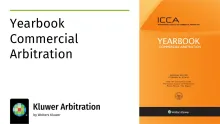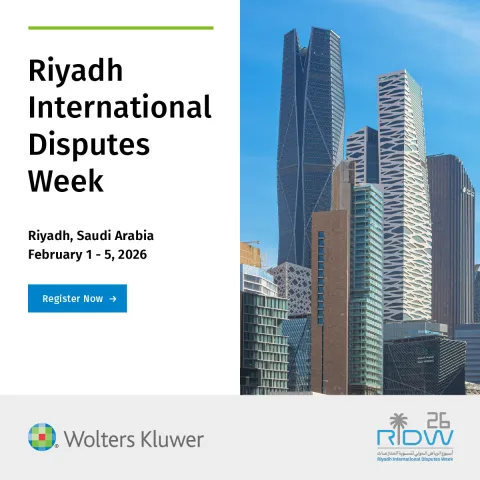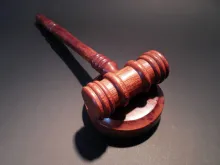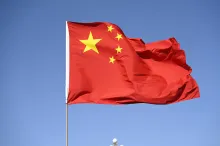From Tweets to Challenges: Social Media and the Expanding Scope of Bias Allegations
September 26, 2025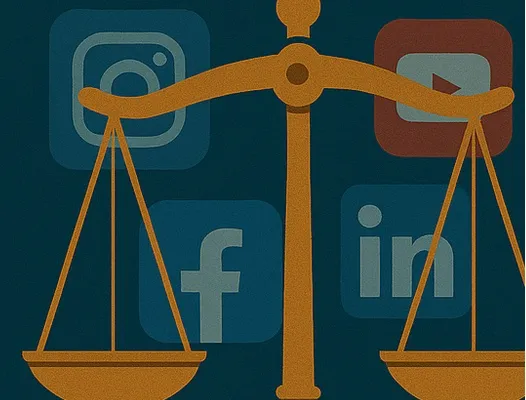
The rise of social networks has provided parties with unprecedented tools to assess the impartiality and independence of arbitrators. An arbitrator’s activity on platforms such as Facebook, Twitter (X) or LinkedIn can now be scrutinized for potential conflicts of interest, revealing undisclosed professional connections and shedding light on political, economic, or social predispositions. Unlike human memory, social platforms retain every interaction, enabling parties to uncover even latent biases that arbitrators themselves — like anyone — may underestimate, believing they are more impartial than they actually are.
Since the 2010s, this new reality led to a wave of challenges to arbitrators based on evidence found online. One early example, EURL Tecso v Neoelectra SAS Group, involved allegations that the presiding arbitrator was a Facebook “friend” of the respondent’s counsel and that the counsel had “liked” the former’s Paris bar election campaign. Although these facts were ultimately deemed irrelevant to setting aside the award, the case prompted debates within the arbitration community about the standards of independence and impartiality in the digital age.
These reflections culminated in both a reconsideration of existing guidelines (such as the amendment of the IBA Guidelines on Conflicts of Interest in 2014 to address situations where an arbitrator is connected to a party through social media) and the development of new ones addressing arbitrators’ conduct on social networks (such as, e.g., the IBA Principles on Social Media Conduct). However, most of such guidelines focus narrowly on communications-related concerns which may cast doubts on arbitrators’ independence. They leave unaddressed the more sensitive question: what content arbitrators should or should not post to avoid creating a reasonable apprehension of bias? It remains an open question whether providing such ethical guidance is even feasible without engaging in a complex debate about restrictions on freedom of speech and expression. Nonetheless, recent practice demonstrates that parties are paying closer attention not only to arbitrators’ social connections but also to their personal views shared on social media. As will be discussed below, this practice remains sporadic for now. However, such challenges are likely to become more frequent in the years ahead as arbitration disputes increasingly involve political tensions, military conflicts, and sanctions.
Cases Involving Social Media-related Challenges
The prominent example is WADA v Sun Yang and Fédération Internationale de Natation (“Sun Yang”), where the Chinese Olympic swimmer sought to annul the award on the basis of lack of impartiality of the presiding arbitrator. Arbitrator Franco Frattini published several strongly worded tweets on X (then Twitter) criticizing the Dog Meat Festival in China, using language that was perceived as offensive toward Chinese people. Frattini explained that he stood for the defense of animals for many years but denied that his criticism was directed against Chinese nationals. The Swiss Supreme Court held that these posts created an appearance of bias and set aside the award.
A challenge on the basis of the tweet also arose in a Dispute Concerning the Detention of Ukrainian Naval Vessels and Servicemen (“Naval Vessels”) between Ukraine and Russia, where Russia brought a challenge against Judge James Kateka on the basis of, inter alia, Judge Kateka’s repost on X of the Kenyan ambassador’s statement about Ukraine in the Security Council. The original tweet contained the following text: “The Kenya ambassador to the UNSC perfectly explains how people across Africa understand Ukraine, and what the Kremlin’s acts of aggression mean in our post-colonial world” and was reposted by Cris van Eijk with a comment “Why aren’t UN speeches eligible for Pulitzers??.” Judge Kateka reposted Mr van Eijk’s retweet without any comments of his own. Russia argued that a repost raised justifiable doubts about Judge Kateka’s impartiality. However, the tribunal dismissed the challenge. Recently, Russia withdrew from the Naval Vessels arbitration proceedings, citing its disagreement with the procedure for appointing arbitrators and the “untenable” appointment of the remaining members of the tribunal, including Judge Kateka.
Another example is Rinat Akhmetov v. Russia, where, according to GAR, the challenge against Andrea Bjorklund was upheld due to her LinkedIn post in which she promoted a fundraising initiative for Ukrainian soldiers. Since the decision is not public, it will not be part of the further analysis. The analysis below thus only concerns the Sun Yang and Naval Vessels cases, which are the only publicly available decisions to date that directly address arbitrators’ impartiality in the context of their social media activity.
Who, When, and What?
What takeaways can be drawn from the juxtaposition of these cases, which reached divergent conclusions despite applying essentially similar standards for assessing arbitrators’ bias? In determining whether an arbitrator’s posts gave rise to justifiable doubts about their impartiality, three key questions seem to have guided the contextual analysis: Who, When, and What.
First, Who Authored the Disputed Post?
In the Sun Yang case, the arbitrator personally authored the disputed tweets. In contrast, in the Naval Vessels case, the arbitrator merely reposted a tweet originally shared by a person unknown to him (according to the explanation of Judge Kateka) and already reposted by another, without adding any comments of his own.
While this distinction is not necessarily decisive, the Naval Vessels tribunal acknowledged that a repost can in principle “be characterized as an endorsement of the original post,” it remains essential in cases of reposting to determine precisely what message was endorsed by an arbitrator. In Naval Vessels, the tribunal assessed the context of the repost and emphasized two key points. First, Judge Kateka reposted Mr van Eijk’s comment and not solely the original post, which appeared to be consistent with the Judge Kateka’s alleged consistent practice on X to “to draw attention to matters of importance in the African continent” (para. 95 of the Decision on Challenge). Second, the most controversial wording characterizing Russia’s actions as “aggression” was hidden in the repost and could only be seen by clicking through to the original post. Therefore, the tribunal concluded that Judge Kateka’s endorsement likely extended only to the second, more neutral comment praising the anti-colonial agenda, rather than to the first tweet.
However, Professor Vylegzhanin in his dissenting opinion rejected such an “innocuous” interpretation and opined that it was common to assume that a repost without comments means a tacit consent of the person who made the repost with the content of the post. Professor Vylegzhanin referred to the practice of Indian and Canadian courts which held that reposting content implied the person making the repost agreed with the content, as well as the Swiss court decision which held that clicking “like” means endorsing the content. The two-to-one majority of the tribunal in Naval Vessels, however, did not share this view and noted that “the question of whether a repost of another person’s speech amounts to an endorsement is still an unsettled question in law”.
Second, When Was the Post Published?
In both cases, the tribunals carefully assessed the sequence of events. In the Sun Yang case, the arbitrator posted three controversial tweets before his appointment and four after. This timing, combined with the fact that the most inappropriate racist slur appeared twice in tweets published during the proceedings, heightened concerns about the arbitrator’s bias. In contrast, in Naval Vessels Judge Kateka’s disputed retweet as well as the original post were made on 22 February 2022, before the outbreak of the armed conflict between Russia and Ukraine. In this context, the tribunal considered the repost as unrelated to any subsequent Russia’s actions.
Third, What Wording Did the Arbitrator Choose to Convey Their Message?
As the Swiss Supreme Court observed in the Sun Yang case:
“it is not so much the cause defended by the arbitrator that appears problematic in this case but rather certain terms used by him.”
The Court emphasized that the extremely violent terms used twice by Frattini after his appointment were “undoubtedly the most questionable.”
While the Sun Yang case provides a textbook example of an arbitrator’s use of inappropriate language, arbitration practice also knows cases where challenges were brought against arbitrators for language that, although not overtly pejorative, carries a negative connotation toward the actions of one party when viewed in context. For instance, in Perenco v. Ecuador, arbitrator Charles N. Brower was challenged for referring to Ecuador as a “recalcitrant” country during his interview.
By contrast, in Naval Vessels, it was not the challenged arbitrator who used the word “aggression” in relation to Russia’s actions; the term appeared in the original tweet and, as discussed above, the tribunal seems to have concluded that Judge Kateka’s endorsement extended to the comment rather than to the words describing Russia’s actions.
Concluding Remarks
In practice, posts and reposts on social media appear to be treated similarly to arbitrators’ public statements, which may lead (and have already led in some cases) to appearance of bias (see, e.g., a successful challenge of Charles Poncet on the basis of controversial anti-Muslim comments during a TV broadcast).
What conclusions can be drawn from the new emerging arbitration practice? While definitive answers are yet to crystallize, one point is clear – arbitrators should exercise particular caution in managing their social media presence. This vigilance should extend not only to their own posts but also to content they like and share, and it should apply not only in the context of ongoing proceedings but also in anticipation of future appointments. Whereas an average social media user may afford a certain degree of carelessness, it remains uncertain whether arbitrators may enjoy the same level of digital freedom of expression.
You may also like


